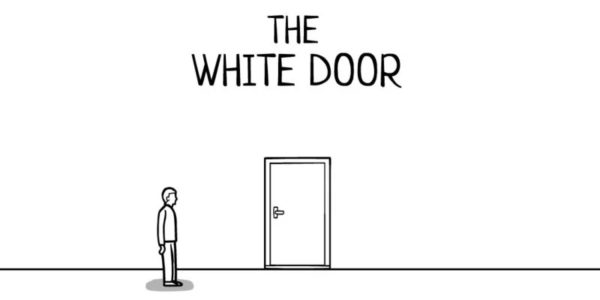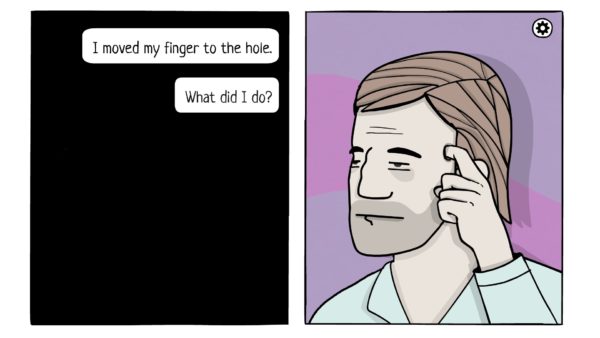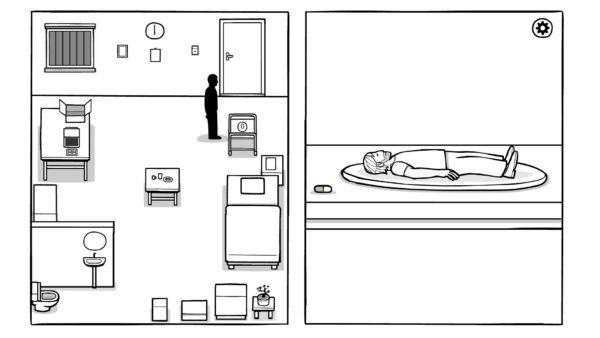The journey through mental illness is a deeply personal one, intertwined with the life events that lead to the eventual manifestation of symptoms that we label depression, anxiety and so on. I think that’s why exploring these themes in games is often done in a highly allegorical way that, on the surface, appears to be completely disconnected from what the stereotypical experience of these health conditions are. In that sense whilst games like The White Door would in one view be seen as a surrealistic exploration of the grieving and trauma process it could very well be exactly what it was like for someone to go through it. In terms of an actual game it’s definitely not bad and likely best enjoyed on your mobile platform of choice over many, small sessions.

Your character, Robert Hill, wakes up in a Mental Health facility and suffers from severe memory loss. The facility enforces a strict routine to help patients remember their past and what led up to them being there. Scattered throughout the room are remnants of your past, little details that’ll help jog your memory and, hopefully, bring about some resolution to the troubles of your past.
The White Door splits your screen down the middle, the one on the left being a kind of interactive map whilst the one on the right being what your character is currently focused on. That, combined with the simplistic graphics consisting of mostly bold outlines and limited coloured panels, gives The White Door a comic book like aesthetic. The use of colour (and the lack thereof) is one of the game’s primary storytelling mechanics, highlighting the difference between the past and the present, the times of emotions and feeling and the times of emptiness and thoughtlessness.

Mechanically the game is pretty simple, requiring you to go through the day’s routine step by step so you can progress to the next day. Whilst there’s no tutorial to speak of the game does guide you in the right direction should it see that you’re taking quite some time to finish a particular puzzle. That being said there were a few times I had to consult a walkthrough guide as I just couldn’t figure out exactly what the game was driving at. Still the game’s logic is consistent enough that once you’ve figured it out for the first time the deviations from there on out are relatively easy to understand.
The story, at its core, is a simple one although the heavy use of surrealism does lead you to question just exactly what is real and what isn’t. There are some parts of the narrative that are obviously completely disconnected from reality but making the connection back to real world events isn’t really possible since you don’t have much of a reference point. To be sure, as I alluded to in my opening remarks, some of these things are certainly allegorical elements reflecting a personal experience and are most likely representations of feelings more than they were actual events. Suffice to say it’s interesting even if it does leave you a little dazed and confused throughout.

The White Door is an interesting experiment in surrealistic storytelling, combining various narrative elements together to tell a much larger story than what it’s few words put forward. Its simple mechanics get out of the way for the most part leaving ample room for the story to develop. Apart from that there’s not much more to say about The White Door and, should this short review piqued your interest in it, then it’s likely worth investing the couple hours to explore it yourself.
Rating: 7/10
The White Door is available on PC, iOS and Android right now for $5.95. Game was played on the PC with a total of 102 minutes play time and 6% of the achievements unlocked.



